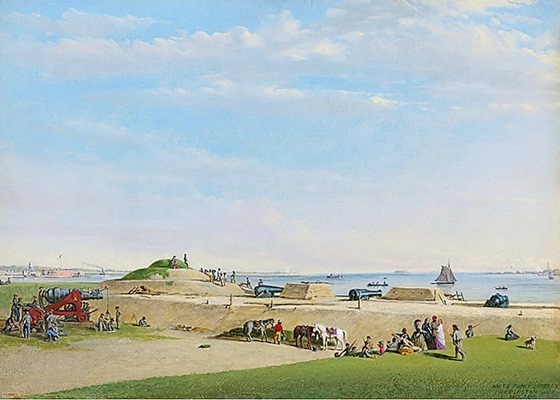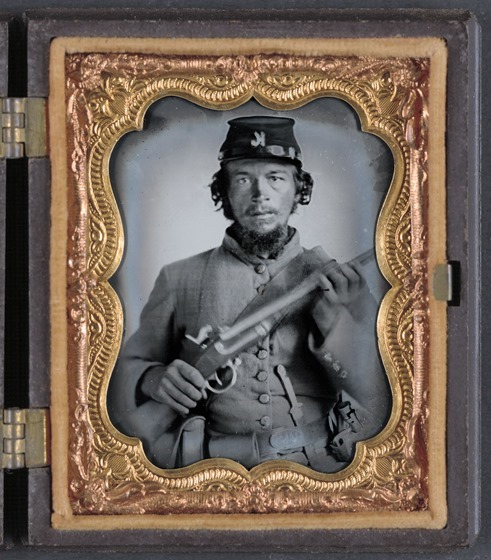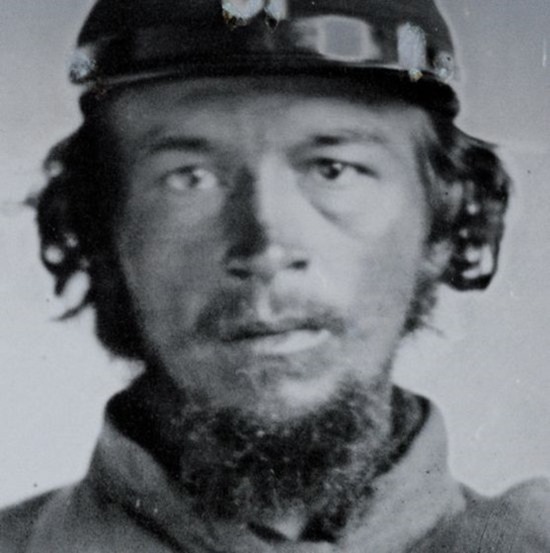Charles Francis Adams, Jr., to his father
Warrenton, Va.
Christmas evening, 1863
This evening finds me in reality in winter quarters. To-night for the first time this year I feel comfortable in my new house, the admiration of all who see it, with a fire-place, candles, chairs and table. I must describe it even if I am verbose, for not even Mrs. John D. Bates, on moving into No. 1. Boston, experienced half the satisfaction I feel in this offspring of my undeveloped architectural talent. It cost me twelve dollars in money. I bought half of a roof of a building from which the soldiers had stripped the sides. This was divided at the ridge-pole and the two sides constitute the two sides of my house, six feet high by fourteen long, the front and rear logged up, with an open fireplace in the rear, the whole covered with an old hospital tent fly, and with a floor of boards — warm, roomy and convenient, two beds, three chairs and a table, and every thing snug. Don’t talk to me of comfort! Bah!! Everything is relative. I have more real, positive, healthy comfort here than ever I did in my cushioned and carpeted room at home! So much for my room and now for my letter.
My last was from here and a week ago last Monday. It was well I wrote then, for if I had n’t, you would n’t have heard from me yet. The truth is this Brigade is in an absurd position and doing most unnecessary work. We are here at Warrenton — one brigade of cavalry — the army is at Brandy Station and Rappahannock Bridge. We have nothing near us and seem to be here theoretically to cover the railroad, practically to tempt the enemy to attack us. It is wicked to put troops in such a position. Every day I thank God we are safe so far. Every day increases our danger and, as a natural consequence, we are being worn out with incessant picket and scout, scout and picket. The simple truth is we are wretchedly officered, Brigade, Division and Corps. Pleasonton is a perfect humbug and has and does, unnecessarily, cost the Government 20,000 horses a year. Gregg and Taylor are both — Pennsylvanians, and I — well, I suppose I’m a confirmed grumbler. . . .
Speaking of the war, do you see the “Army and Navy Journal,” a new weekly publication in New York. If you do not, you had best at once subscribe for it. It is the only American paper which treats calmly and intelligibly of military questions. It would afford you in England immense information and insight into things which newspapers only muddle. It would furnish you as Minister many solutions of problems over which you must puzzle, and before which the English stand amazed. As to Meade, be assured he has the confidence of this army. He is a brave, reliable, conscientious soldier and under him we need fear no heavy disaster, and may hope for all reasonable success. He is not Grant or Rosecrans, but he is ten times Hooker and twice McClellan. He is an able and formidable General of the Fabian school, more of the Marshal Daun than the Frederick the Great. My great wish is for no more changes.













